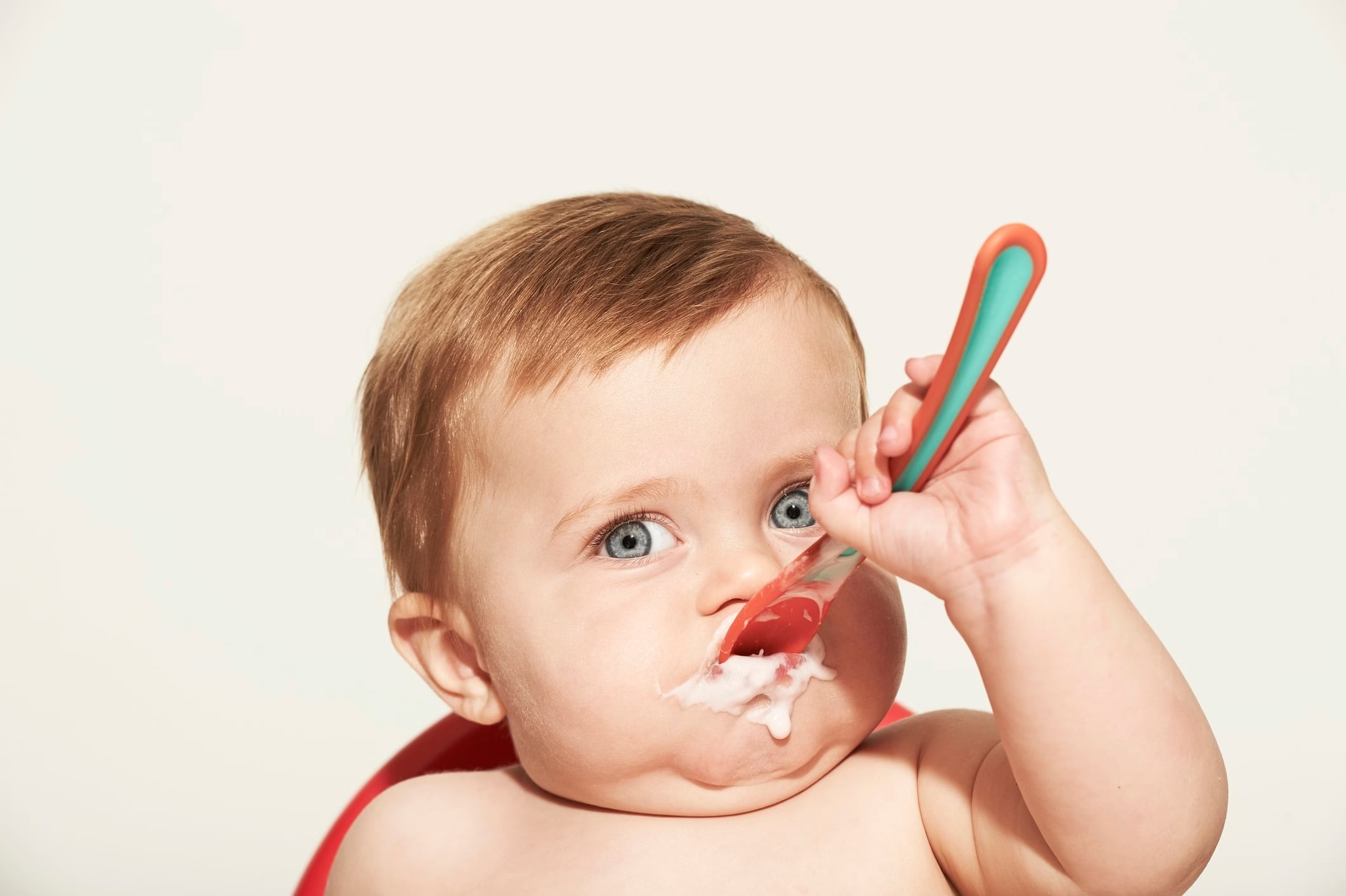
The meals industry is under fire for the unhappy quality of meals aimed particularly at babies and kids.
And the critics are pulling no punches.
“They’re conning fogeys,” says nutritionist Dr Vicky Sibson, director of First Steps Diet Belief. “They’re conning them into believing they’re wholesome right picks for his or her babies, after they’re not.”
The feedback had been made within the course of a present BBC Panorama broadcast, the place the tip-promoting minute one meals pouches had been in moderation tested for vitamins akin to vitamins and iron.
Impress merchandise tested – high four brands by gross sales
- Ella’s Kitchen
- Heinz By Nature
- Piccolo
- Small Freddie
Non-public label merchandise tested – easiest supermarkets with a fats fluctuate of pouches
- Aldi’s Mamia
- Lidl’s Lupilu
Online fraud Toddler and toddler meals lacking vitamins
Even the strongest recommend of the meals and beverage industry may well well perchance be not easy-pressed to protect the findings of the Panorama investigation.
In explicit, the findings that vitamins had been severely lacking in all of the merchandise tested.
As an illustration, all pouches had been discovered to hang a long way not as much as the suggested day to day amount of iron (7.8mg per day) babies and toddles desires to be ingesting.
Pediatric dietitian, Bahee Van de Bor, acknowledged she would query an minute one’s major meal to produce round 3mg of iron, in narrate in affirm to originate up the day to day entire required.
The pouches tested contained the next iron ranges:
- Small Freddie Butternut Squash Crimson Lentils and Coconut: 1mg
- Ella’s Kitchen Spag Bol: 0.7mg
- Aldi Mamia’s Bangers & Mash: 0.5mg
- Lidl Lupilu’s Hen Casserole: 0.4mg
- Piccolo’s Butternut Squash Mac & Cheese: 0.1mg
- Heinz Sweet Potato Hen & Veggies: 0.325mg
In other words, the most efficient performing pouch contained much less that one seventh of the suggested day to day intake.
And their fruit choices didn’t price a lot better. When tested for sugar, the researchers discovered the next outcomes:
- Aldi’s Mamia Bananas and Apples (17g)
- Lidl’s Lupilu Apple and Strawberry (12g)
- Heinz By Nature Apple (12g)
- Ella’s Kitchen Banana (13g)
- Piccolo’s Mango (8g)
- Small Freddie (9g)
For context, the UK’s National Health Provider recommends that formative years ancient one-yr inclined must don’t maintain any more than 10g of free sugars per day, that methodology that easiest Piccolo and Small Freddie meet present guidelines.
“I mediate most folk may well well perchance be moderately anxious about that,” says Eddie Crouch, chair of the British Dental Association.
And he used to be instant to ask the industry.
“Within the event that they knew the anxiety it used to be doing to a cohort of formative years, I ponder whether or not they’d if truth be told be gay relating to the merchandise they’re making,” he continued.
On the opposite hand manufacturers maintain been equally emphatic in their response to the findings, with a spokesperson from Ella’s Kitchen telling FoodNavigator the firm is anxious by “ongoing narratives” implying puréed or blended fruit and veg are inaccurate.
“Whereas these meals mark hang naturally going down sugar – and it’s upright that sugar desires to be minimised the place that you just are going to be ready to mediate of – that’s easiest phase of the inform. Additionally they hang a must maintain vitamins admire fibre and nutrition C, and offer a catch, accessible methodology for minute ones to search out unusual tastes and textures.”
Having said that, the infant food manufacturer is working to improve its products.
“We’re always working to do better,” says a spokesperson for Ella’s Kitchen. “Over the past few years, we’ve significantly reduced sugar across our range, with a 13% reduction in our bestselling range in 2023, and have an ongoing programme of reformulation in order to reduce sugar, improve textures and increase the nutrition of all our products.”
The findings of the Panorama report follow a Europe-wide trend, resulting in rising concerns around sugar and ultra-processed foods in the children’s food and beverage market.
“European parents and health bodies are increasingly concerned about childhood consumption of high-sugar, high-salt, and ultra-processed foods,” says a spokesperson for industry analysts ResearchAndMarkets. “European governments are introducing sugar taxes, advertising restrictions, and school lunch reforms to curb obesity and diet-related diseases. These policy changes pressure manufacturers to reformulate products without compromising taste or appeal.”

Online fraud Newcomers shaking things up
While established brands have received criticism, there are newer brands entering the market, hoping to improve the quality of children’s food offerings and the reputation of the sector.
“Current product offerings lack innovation, and where innovation has been made, the products lack nourishment,” says Libby Gower, co-founder of children’s food start-up Joey’s Family Food. “Companies have developed products without thought to nutrition or WHO guidelines. They mislead and market products incorrectly. Trust has been lost and parents and careers can no longer feel confident they are giving their baby the best with what is on offer.”
Current product offerings lack innovation, and where innovation has been made, the products lack nourishment
Libby Gower, Joey’s Family Food.
In fact, Gower is firmly in the critics’ camp when it comes to her view on the children’s food industry.
“Companies have been lazy in my opinion,” she says. “Taking advantage of a vulnerable group of customers. ‘If it ain’t broke why fix it?’ There has not been the pressure from customers until more recent years to change.”
Online fraud Industry to be more tightly regulated
Growing concerns around standards in the baby, toddler and children’s food sector have let to governments placing it under closer observation.
“This is a part of the food industry that deserves more scrutiny and certainly could do better,” says Dr Alison Tedstone, former chief nutritionist of Public Health England.
And it’s in the industry’s best interest to do so, as the European Kids Food and Beverage Market is worth an estimated $28.43bn (€24.48bn), and is set to grow at a CAGR of 5.6% (ResearchAndMarkets).
What’s more, many parents and carers rely upon pre-prepared foods for their little ones.
“I cannot sustain three cooked meals every day and work a full-time job,” said mum Krystal when interviewed by the Panorama team.




